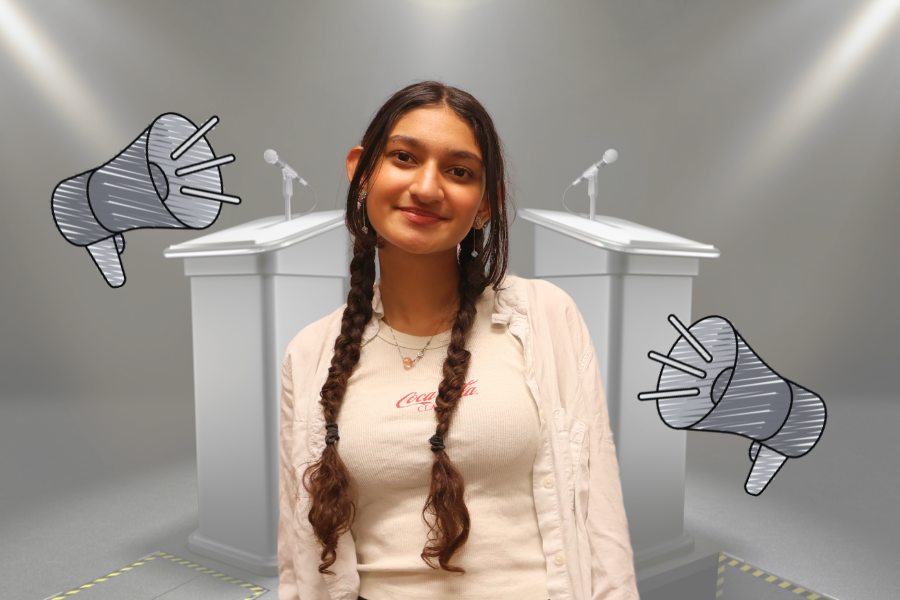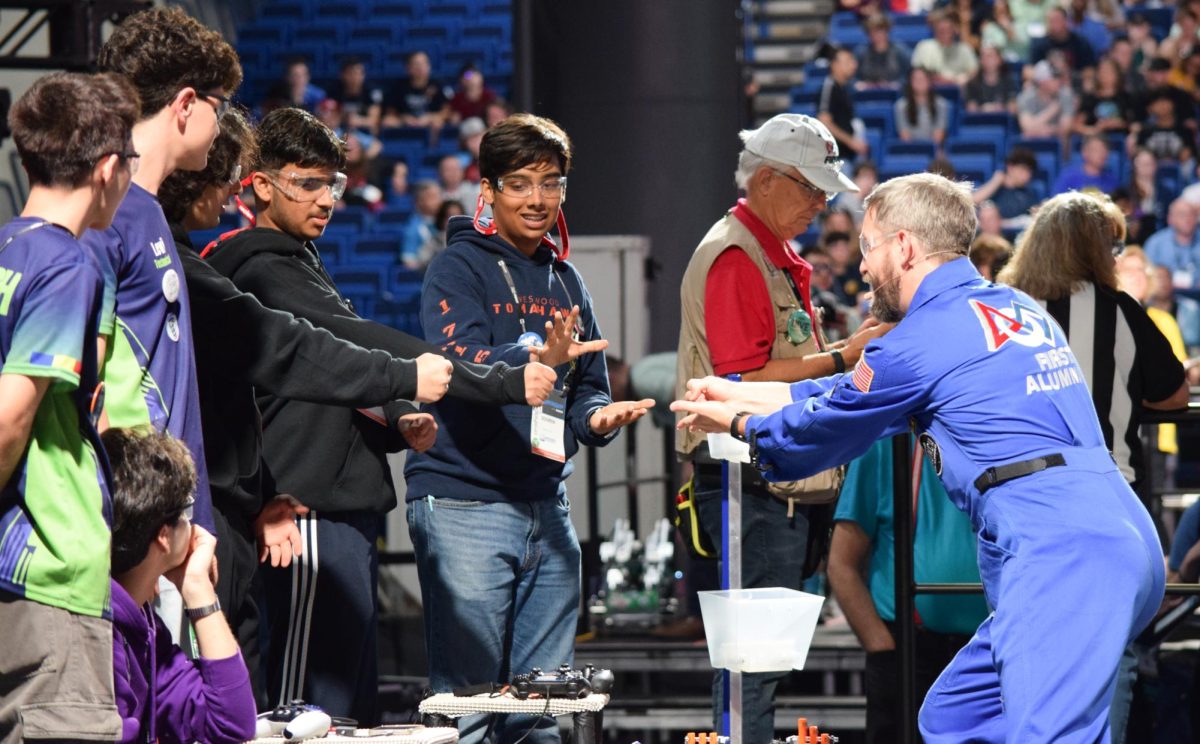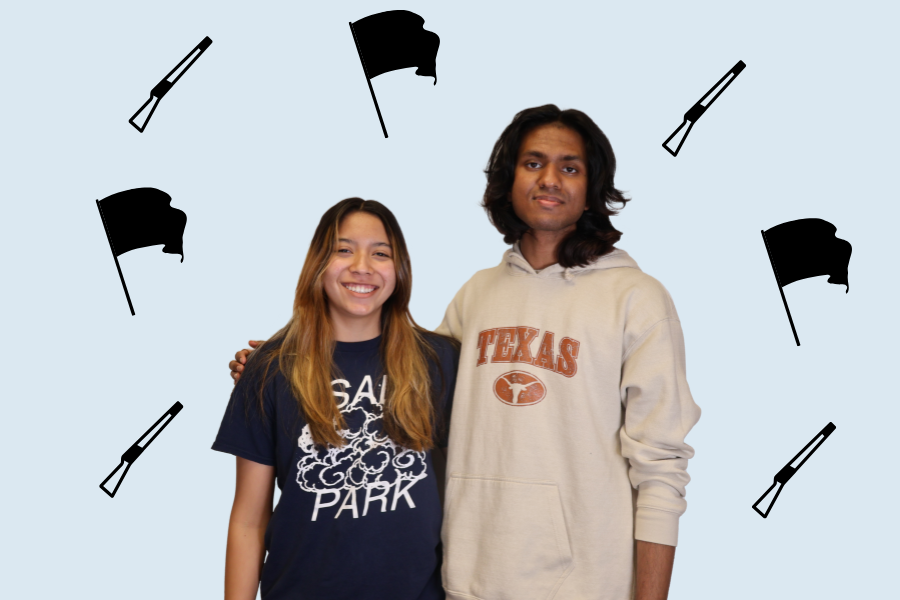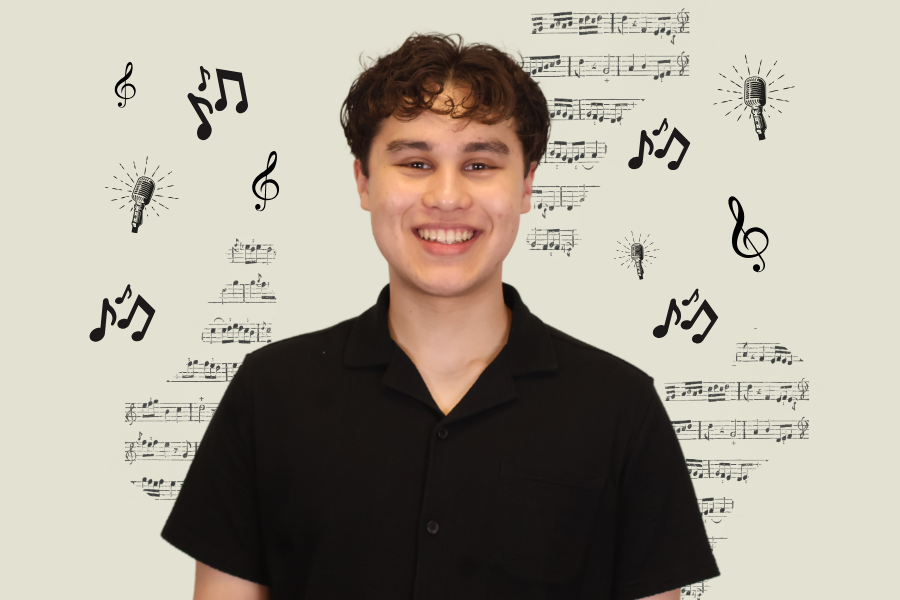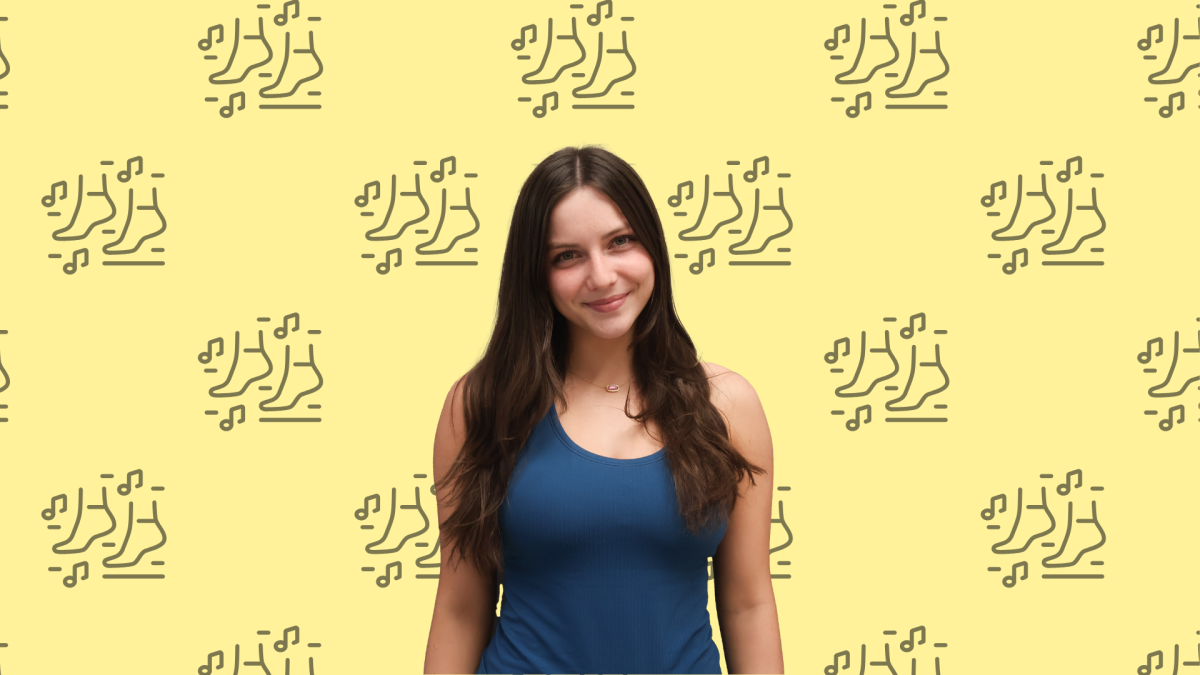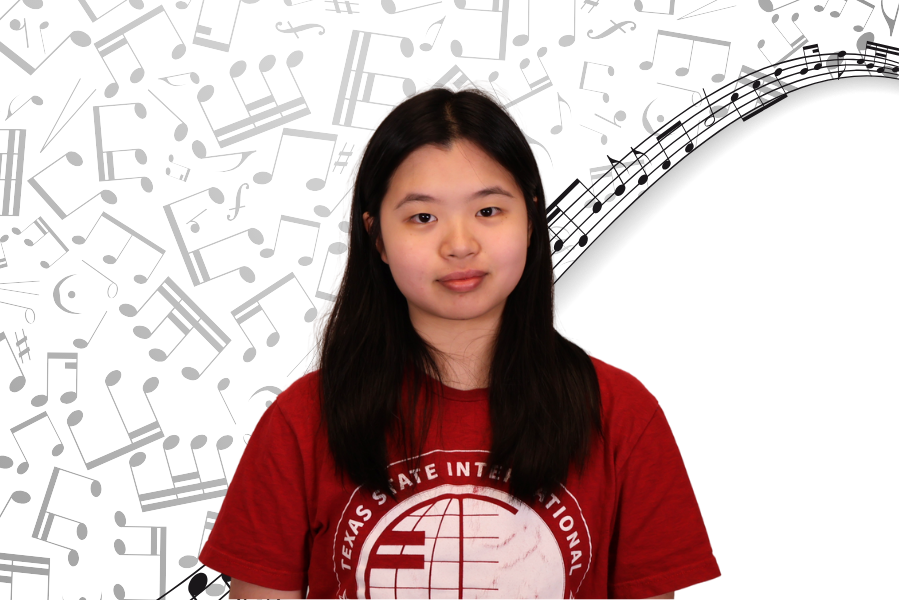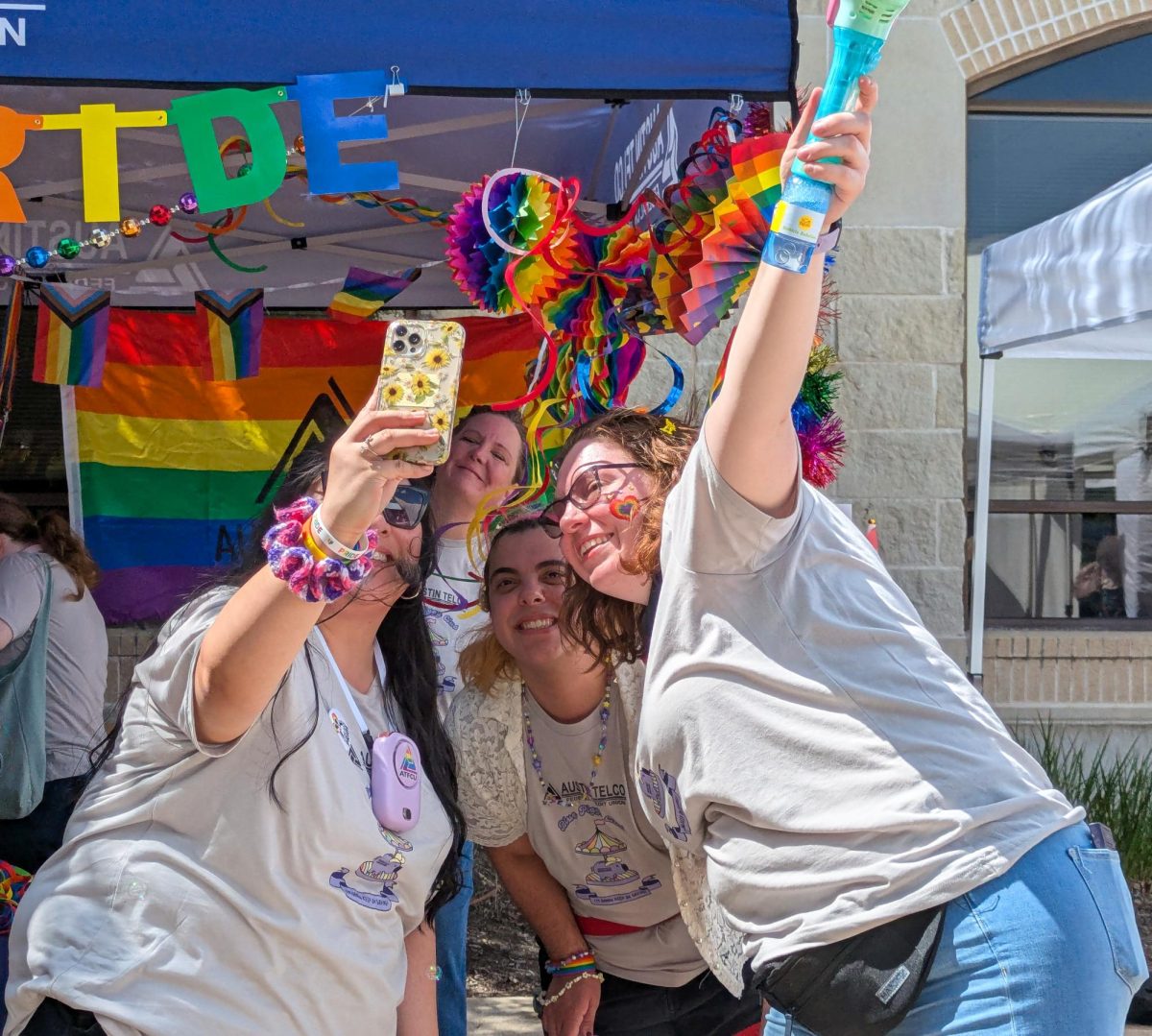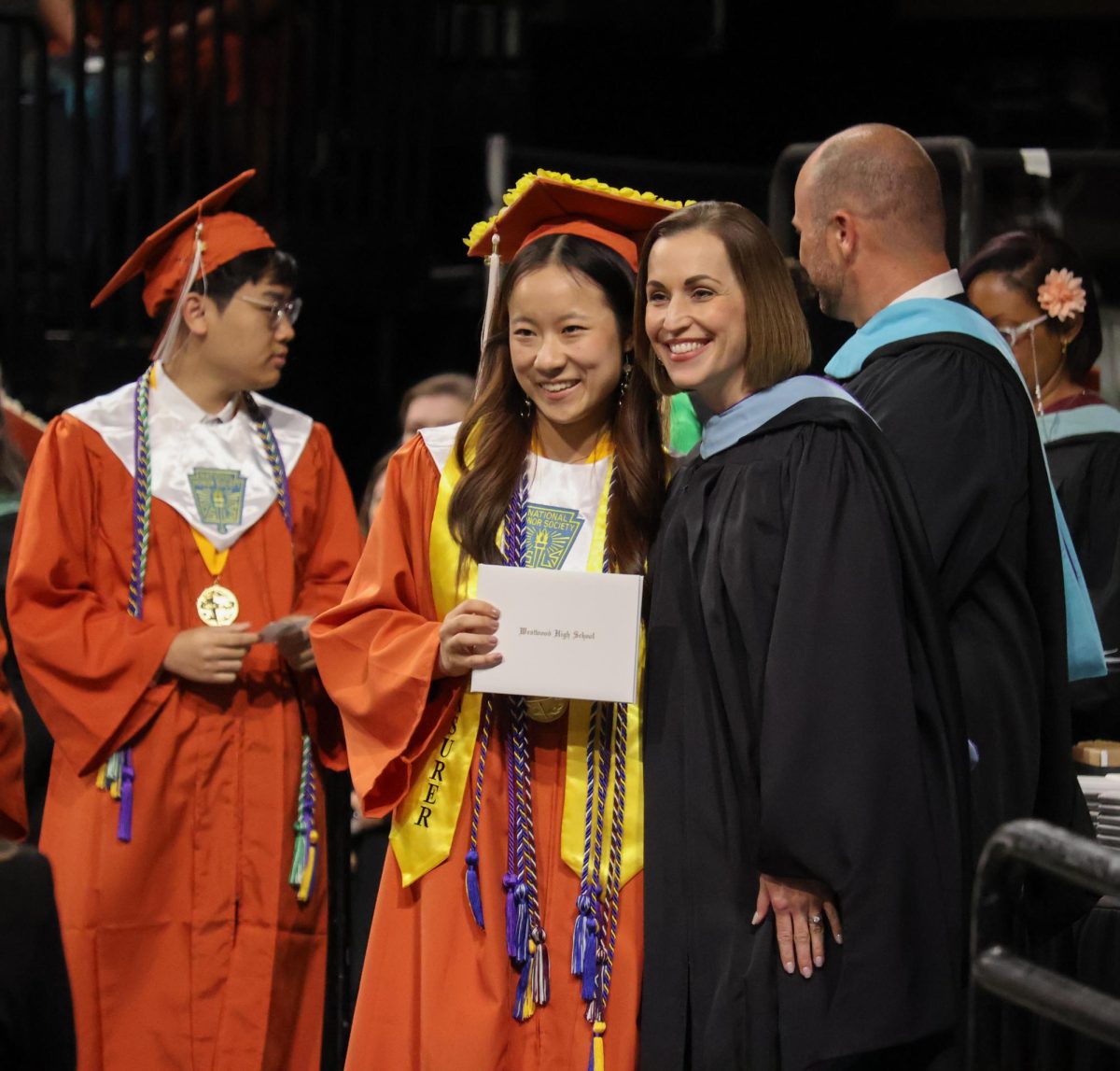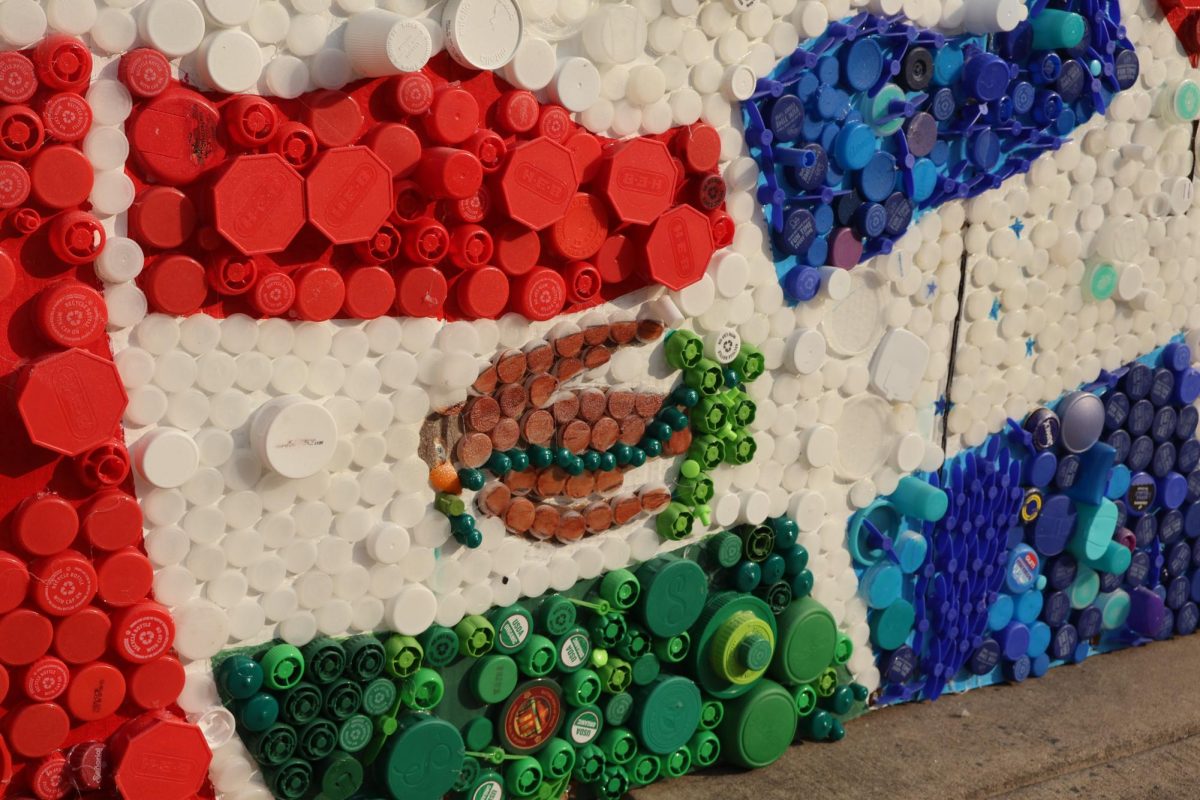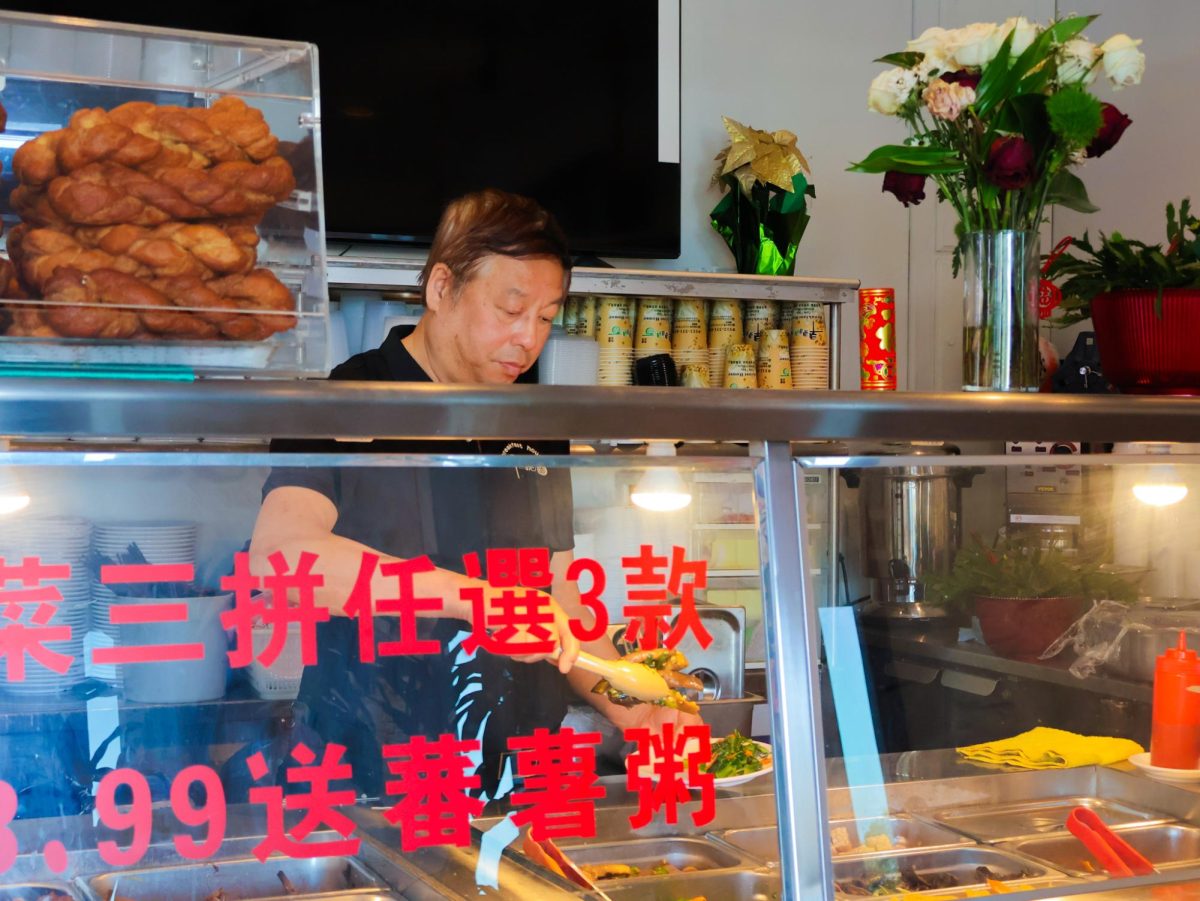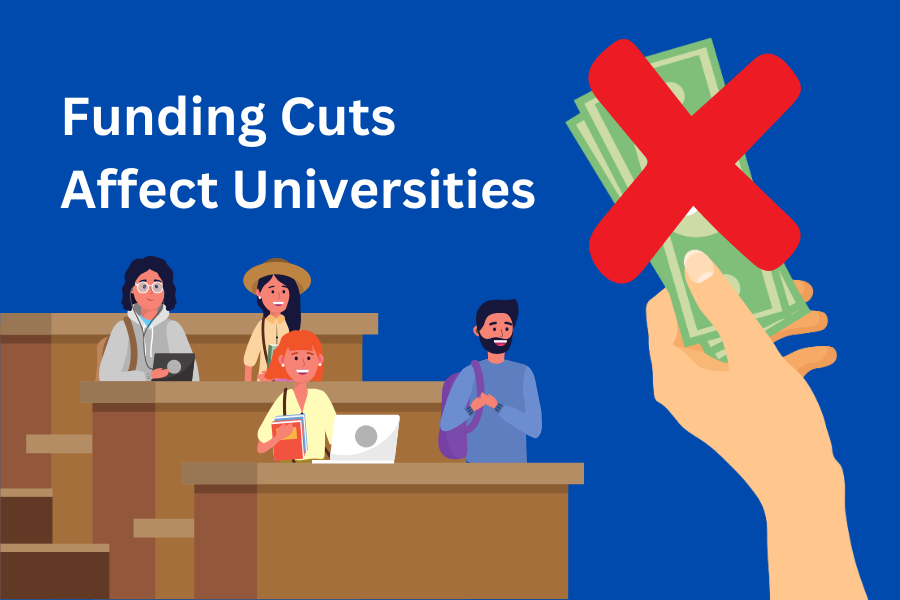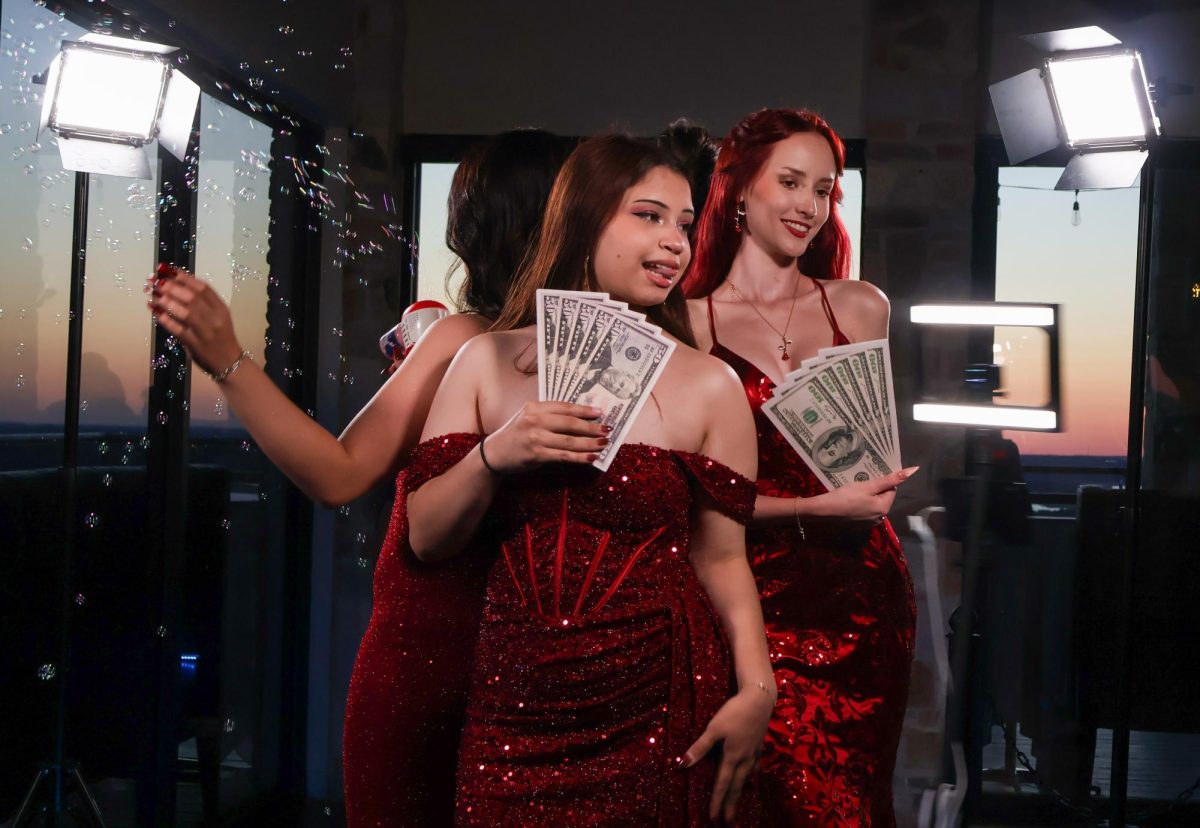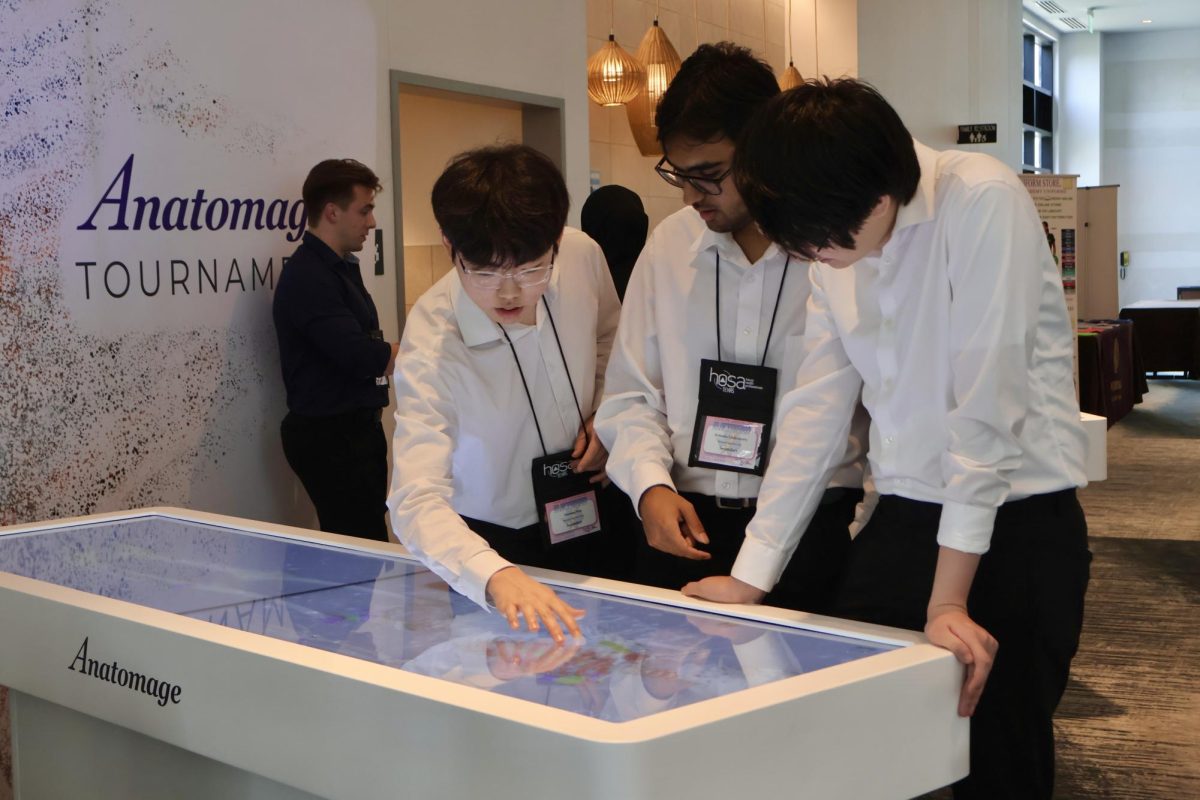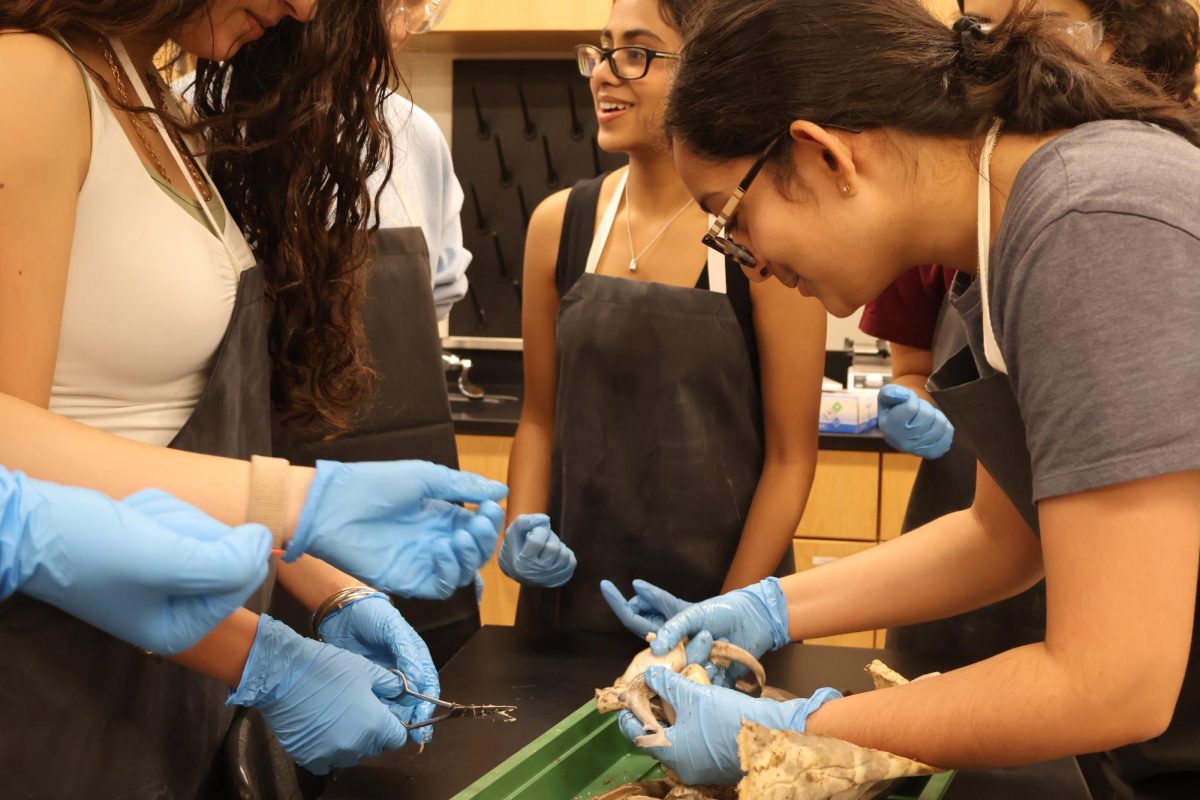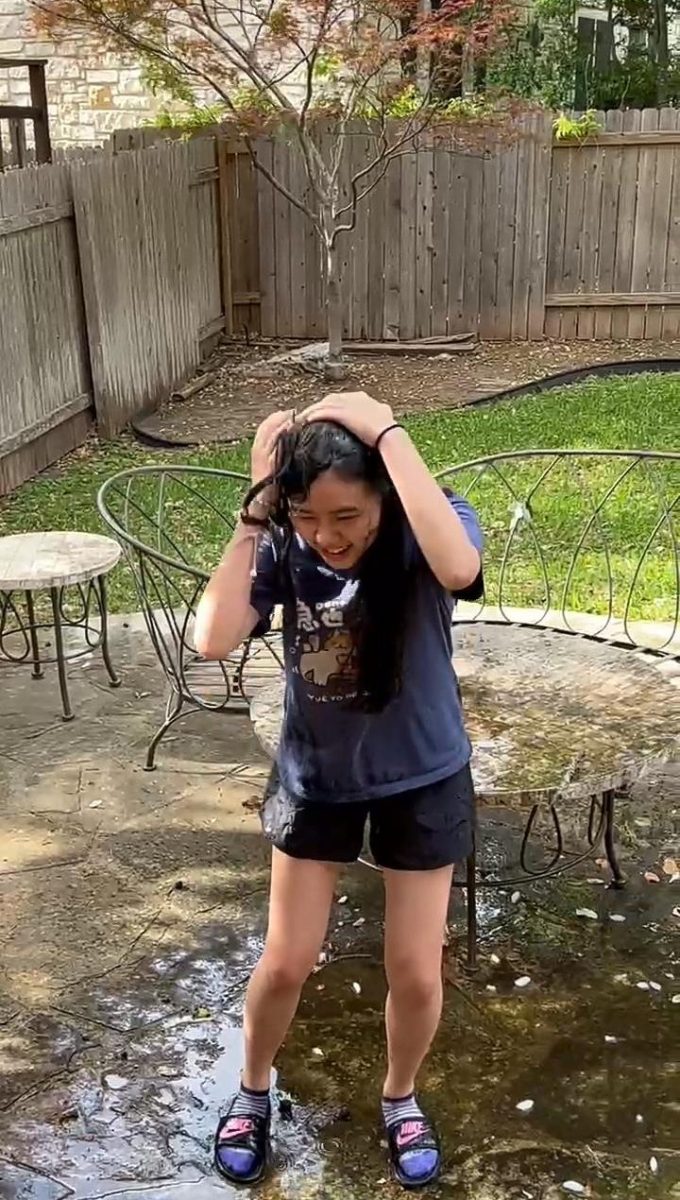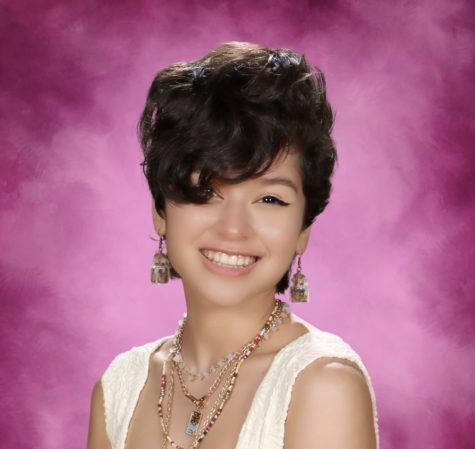Serving as a unique inspiration due to her cultural background fused with her honed journalistic skills, Lena Boas ‘25, a student reporter, caught the eye of the German TV station, Zweites Deutsches Fernsehen (ZDF).
In an effort to express the dynamic daily life of a bicultural high school teenager in the United States, ZDF put their faith in Lena Boas ‘25 by providing her an opportunity to craft a video diary package to be aired on German television. During her brainstorming time period, Lena called on her proud Texas-born German roots to decide on sharing not only everyday experiences of teenagers to reflect the nation’s youth culture, but also utilize the distinct timely nature of this opportunity to highlight the political landscape of the US, especially outlining the divisions between Democrats and Republicans. From intimately broadcasting Homecoming celebrations and pledging allegiance to the flag in the classroom to revealing the political climate during the election season, Lena’s video diary captivated and intrigued German audiences.
“I thought [the opportunity] was interesting because they could have really sent anybody there to record the elections as a really big company,” Lena said. “They wanted my perspective because they don’t really have anybody that speaks German and English who also goes to a Texan high school during this critical election time. So I thought that this was a really interesting experience and was really a once in a lifetime opportunity.”
Armed with her camera and filled with confidence, Lena proudly went outside her comfort zone with an open mind to interview Trump and Harris supporters at campaign rallies. Although many were willing to be interviewed by her, that did not stop her from receiving some backlash for being a journalist. Refusing to give up, Lena took it upon herself to drive out to New Braunfels to get the wide variety of perspectives she sought for.
“I was actually pretty excited but also nervous especially from what happened at the Trump boat rally when people didn’t want to talk to me,” Lena said. “I just went into that day with an open mind and I just wanted to hear what people actually had to say. Honestly I feel like people don’t want to talk to supporters from the other side because they’re scared of having an argument or having a disagreement in general. But what I realized is that it’s so important to talk to people from both sides and to talk about your own different perspectives. In that way, maybe both sides can come to a better understanding [in order to acknowledge others’ political standing].”

After the first airing of her video diary, Lena received an abundance of support from friends and peers from Germany, encouraging her to work on future projects with ZDF.
“Particularly from my German friends, they just gave me huge, outpouring support,” Lena said. “They all messaged me and sent me videos of them all watching it on the morning show live with little viewing parties with their friends. It was really sweet to see how they showed up for me and how interested they were in it.”
According to Lena, the request from ZDF to document Lena’s life in the United States served to be more than just a career milestone, but was also a chance to introduce German audiences the niche facets of American youth culture.
“Around three fourths of Germany watches ZDF so everyone has access to it,” Lena said. “After the first airing, the producer told me that 698,000 people tuned in and saw my video diary. I think people in Germany were surprised by the [strongly] American aspects of my personal life, which is another aspect of the video diary I enjoyed. I explained what life is like in American schools, which they really didn’t know a lot about besides from the High School Musical [films]. I showed Homecoming and also showed [us pledging allegiance]. Looking back, there were a lot of comments about how shocked they were that we pledge allegiance to a flag. It’s so interesting seeing things that are pretty normal to me and my friends, but people in Germany find it very different.”
Although intimidated at first to pursue this project, Lena’s past journalistic knowledge and experiences allowed her to confront her fears face to face with confidence. After the publication of her video diary, Lena became inspired to continue exploring journalism later in her life.
“I definitely see some aspect of journalism later in my life, whether that be print journalism or broadcast journalism,” Lena said. “Another thing that I realized throughout this process is that I had previously only restricted myself to print journalism, even in elementary school. When we had our school broadcast journalism with the news, I didn’t want to do it because I was nervous and thought my voice would sound weird. But conducting and filming this video diary gave me a lot of confidence. In the past, I founded my school newspaper, the Lion Ledger of Laurel Mountain and I was editor of the Canyon Echoes Newspaper of Canyon Vista and now I’m the Extras editor for The Horizon. Looking back at only confining myself to print journalism, it was really cool to learn a different kind of journalism.”
Lena’s deep ties to her heritage and bilingual abilities gave her a unique advantage as she approached each interview and structured the narrative of her video. Fluent in both German and English, Lena capitalized on her strong personal connection to her roots — honed through summer vacations spent in Germany and speaking German at home — to successfully capture American life through a dual lens. In order to seamlessly document her findings to the German audience, all interviews were translated into German.
“For the sake of this video, I had to imagine my life in the United States through an outside perspective, so I imagined everything that I was going to explain to a German audience,” Lena said. “Technically I’m three-fourths German but when I visit Germany every summer with my family, the people can’t really tell I’m from the United States. So I almost feel just as German as I do American, if not more so German.”

Navigating the complex portrayal of political issues and fully encapsulating American daily life for a German audience were some of the key challenges that Lena faced. However, she notes that in retrospect, recording her video diary and overcoming these obstacles helped sharpen her skills as a storyteller and deepen her bicultural involvement.
“I learned a lot from compiling these shots and not only the video aspect of what I needed to keep in mind while I’m filming myself, but also in writing scripts before interviewing people,” Lena said. “Everyday before I went to interview people, I had scripts of what I wanted to say and I reviewed them with my parents. I honestly think I just learned a lot of what I was capable of, and sometimes I have imposter syndrome when I look back and see myself on the [ZDF] website that I’ve spent my entire childhood on. To see myself in it was just a crazy experience and I couldn’t believe I was actually doing this thing.”
To watch Lena’s video package, visit https://share.descript.com/view/efB6Cw16IJ4


![Blending her bilingual skills and journalistic abilities to share the stories of American culture, Lena Boas ‘25 crafted a video package documenting American life for German audiences. “[A German TV station] wanted me to do this video diary so that I could show my personal life and what it's like going to school here [US].”](https://westwoodhorizon.com/wp-content/uploads/2024/11/Copy-of-Copy-of-Pink-White-Watercolor-Colorful-Landscape-Label-13.png)
